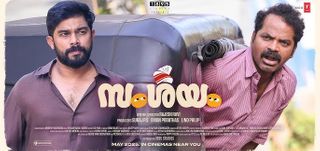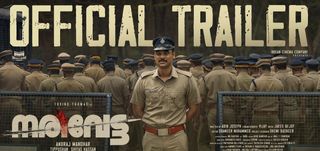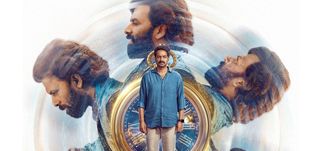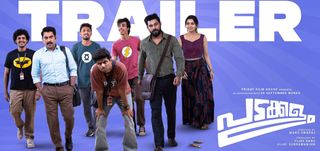
Sufi Paranja Kadha Movie Review
Sufi Paranja Katha is a heartrending sketch of adult love, and talks of the power and passion that serve as requisites to faith. The film's cinematic sensibility has a mythical quality to it, as time merges into one and becomes a flawless single entity.
The story that the Sufi tells is that of Karthyayani (Sharbani Mukherjee), born into the Melepullaram Nair household and whom her uncle Shankunni Nair (Thampi Antony) predicts would lead no regular life. Karthy matches up to the stars on her horoscope when she decides to elope with a Muslim vendor Mamutty (Prakash Bare) and later assumes the name Suhara at his house in Ponnani. Caught in a storm of contradictory beliefs and traditions that threatens to upstage her very life, Karthy refuses to give in and holds fast to her convictions, even as she realizes the ground slipping away from under her feet.
Karthi is no ordinary woman; and I am not even for a moment referring to those saintly attributes that the film flashes across her face. At heart, she exhibits a fierce rawness that's uncharacteristic of women of her age. There is no escape from her laughter as she flirts outrageously with her uncle, brushing against him and lying close to his chest, and upon being reprimanded for her behavior before the idol in the temple, whispers playfully that the bhagavathi must have long gone to sleep.
One cannot forget the scene in a hurry when Shankunni Nair ties himself up in chains and waits for his niece's departure with her lover. We do not get to see him for a long time after that until he finally arrives to take Karthy into his arms again. He heads off once again, throwing the gates open, and leaving them swinging in the winds.
The romantic fervor that grips Mamutty and Karthy finds a summation on the banks of the river that they plan to cross at night. Karthy in a moment of hesitation pulls him back as his feet get ready to find their way into the unsure waters. Life is uncertain, and Karthy for a moment seems like echoing her uncle's thoughts at the onset, that human existence couldn't be that fair. They make love under the star lit sky and in a scene that's torn off straight from paradise the couple swims across the river at night to a new life that awaits them on the other side.
On a deeper level, Karthy deals with the physical, intellectual and emotional backgrounds across which she moves with such ripeness that she amazes us at times, as a woman of profound mental strength. Mamutty subtly suggests that her name would have to change, and so would her beliefs and religion. She lies with her eyes closed, and nods in agreement, a faint smile playing on her lips. And then she says that everything should change, and so should the people who demand change.
This is not just a lovely film on account of the poignant tale that it tells, but at moments it comes across as pure verse on screen. In a mesmerizing shot, the rains break across the floors of an unlit akathalam in the dark hours of the night. Throwing caution to the winds, an ecstatic Karthi is seen getting dripping wet in the rain later, while her olakkuda serves as a mere adornment in her hands. Shadows of Mamutty and his new lover travel across the contours of a dusky beach as the moon descends on the earth, drenching it in a crystal blue. There are any number of scenes in the film that I would love to watch all over again, just for picture portraits that they put on display.
Sharbani hasn't had a glorious career as yet, and this is one film that should change things for her. As Karthy, she's stunning, and she seems to have seized the challenges inbuilt in the story of this intriguing woman in the true spirit, and evokes them beautifully with neither an elucidation nor a justification. Prakash Bare on the other hand is unconventionally striking and almost manages to steal the scene from under Sharbani's nose at times. Together they strike us an odd couple, and yet their performances elevate their tale to loftier heights.
Sufi Paranja Katha tells a simple story that fascinates us and which grows dearer to the heart with time. They say love, like art endures the tests of time. And it turns out that Priyanandanan's film is in many ways art in its own right.



















